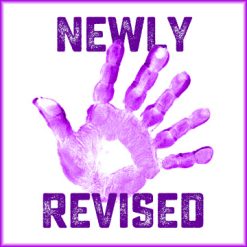|
CAREER Learn This BEFORE You Ask ...
 By Karen Commins By Karen ComminsVoice Actor Just about every week, I receive an email from someone who is interested in starting a career in voice overs. Lately, I've noticed that more and more people are writing to me and asking for a mentor to help them get started.
WHY SHOULD I MENTOR YOU?
While it's certainly a flattering request, whenever the word mentor is mentioned in an introductory email, I am flooded with a torrent of not-so-kind thoughts:
In short, the word mentor is so loaded with connotations that it makes me want to run in the opposite direction.
FEELS GOOD - SOMETIMES
Of course, everybody needs help sometimes. It feels good to be able to help someone along the way and make a difference in their lives.
I also know first-hand how fantastic it feels to receive key advice from someone who you admire and respect.
However, people are approaching the mentor question way too soon and in the wrong way.
CONSIDER THESE TIPS
After doing some research, I found three things to know about finding a mentor:
1. Assess Your Need
In his excellent article for the Huffington Post, Steve Blank points out this important distinction between teachers, coaches, and mentors:
TEACHER VS. MENTOR
When newcomers write to me saying they are looking for a mentor, they really should be looking for a teacher.
My friend Bob Souer is universally admired and respected in the voice over world. He is an exceptional voice talent who is unfailingly kind and generous to each person he meets.
Since I knew he occasionally has chosen to mentor some people, I asked him how and why he decided to become a mentor.
Bob quickly responded and graciously gave me permission to quote him here. His comments illustrate Blank's third point:
The people I've chosen to mentor have each had their own story. Some have been people with whom I had an established friendship, then when I saw them struggling and thought I might be able to help, I've offered that help.
For a few others, they've approached me with a specific question and after answering that question and after some further conversation, I've chosen to continue the relationship in a mentoring capacity for a season.
Maybe the best way to describe the process for me is that right about the time someone reaches the point that they don't need my help as much, someone else will come along who does.
I have no formally established pattern and don't plan to make one.
In the 25-plus years that I've been doing voice overs professionally, I've been offered help more times than I can count.
I feel a strong sense of obligation to provide help to others I encounter along the way, who need it. However, it does very little good to approach me and ask me to be a mentor because I turn down most of the people who ask."
Blank states that "a mentor relationship is a two-way street. To make it work, you have to bring something to the party ... [be] "prepared to give as good as you get."
2. Find The Best Teacher
You must identify your weaknesses and then research potential mentors in order to determine the person who is best able to provide the help you seek. Steven K. Scott includes a terrific chapter about recruiting mentors in his book, Simple Steps to Impossible Dreams: The 15 Power Secrets of the World's Most Successful People.
He gives a detailed, 10-step strategy for identifying and recruiting mentors. The strategy requires that you thoroughly research the potential mentors and be able to pinpoint qualities that you admire.
RESEARCH BEFORE REQUESTING
When you approach the person, you will want to be able to explain how you would like to make their admired qualities a part of your life.
Yes, finding a good mentor in the traditional sense can be a very time-consuming proposition. However, you can be mentored by many people in a more passive sense.
Often, a voice over teacher or coach may provide informal and occasional mentoring by listening to a demo or answering questions.
3. Maybe Just Follow Advice
You don't have to meet or have a conversation with your mentor(s) in order to learn from them. This thought may surprise you at first. Scott illustrated this point in a story about a woman who wanted to improve her marriage. She identified family counselor and best-selling author Gary Smalley at the top of her list of perfect mentors.
"She recruited him by reading his books and viewing his tapes. Reading Gary's books and viewing his tapes was in some ways even better than meeting with him because she could do them at her own pace, taking as much time as she wanted."
USE ONLINE FORUMS
We live in the Information Age. No matter what your interest, at least one online forum exists to discuss it.
Voice talent can join a plethora of online communities dedicated to voice overs, segments of voice work like audiobook narration or character acting, audio engineering, etc.
These forums are populated with people having all levels of experience and are great places to sit at the virtual feet of masters.
LISTEN TO EXPERTS
If sitting at their virtual feet is good, listening to them is even better.
Whatever category of voice over work - audiobooks, video games, cartoons, telephony, documentary, etc. - most interests you, you need to be a listener of that category.
In her excellent article "The Company You Keep," Barbara Winter points out that you should "study those who have done what you want to do" in order to meet with the greatest success.
LEARN BY LISTENING
I had an epiphany when reading her wise words and wrote in my journal:
"With that in mind, I realize I need and want to be an active audiobook listener. I think the last one I heard was in Hawaii last year.
I immediately downloaded a book from the library and will be listening to the phrasing and pauses as much or more than the accent. I will listen to an audiobook every day. It's another good way to prepare for the audiobook success and constant work that is coming to me.
Since that day in May 2011, I have listened to audiobooks while I walk my dog or swim.
AN AUDIOBOOK LOVER
I have heard 14 audiobooks and substantial parts of several more.
Not only have I been studying and learning from the technical aspects of each narrator and production, but the avid reader in me is thrilled to be even more immersed in books.
Whether you're new to voice overs or have been in the industry for years, I hope these three tips will help you find the people who can help you move toward your destiny.
I'd love to get your thoughts about the mentors you have had, so please leave a comment.
ABOUT KAREN ... Karen Commins is a voice actor based in Atlanta specializing in narrations, e-learning modules and audiobooks. She records in a soundproof studio and writes A VOICE Above The Crowd, an insightful and entertaining blog about working and marketing oneself in the voice over profession. Karen's latest audiobook is It's Never Too Late To Be What You Might Have Been, available on Amazon, Audible, and iTunes. Web & Blog: www.KarenCommins.com Email: Karen@KarenCommins.com |
As of the NEW website launch, 03/22/2012










@Jennifer -- You are so right in saying that listening is a super critical key to success in this profession!
My epiphany about audiobooks last year was a slap-to-the-head-DOH! kind of moment. I had slacked off from listening to them due to constraints. However, we make time for things that are important, and audiobooks are ultra important to me.
Since I've begun listening to them again on a daily basis, several interesting things have happened:
-- I've written more blog articles about audiobooks.
-- I've initiated and/or become an active participant in numerous on-line discussions about performance and editing considerations in audiobook production, all of which has taken the place of a single mentor in adding to my knowledge.
-- Best of all, I've received more audiobook contracts in the last 6 months than in the last 6 years!
In short, and to quote Ralph Waldo Emerson, "You become what you think about all day long." Actively listening in your voiceover niche(s) keeps you focused on your goals and is your due diligence and research, which helps you learn and grow in ways that no teacher, coach, or mentor could.
@Naomi -- Every person and every relationship between 2 people are different, so I think you have asked the unanswerable question.
Your self-assessment of your own needs coupled with your *research* (there's that word again!) about people who could help address your needs should cause your muse to give you an idea of how to proceed. If you are indeed a novice, you really need a teacher or coach instead of a mentor.
Rather than asking someone to be your mentor, you will want to think instead of what you have to offer them.
@Rosi -- Thanks so much for the kind words! It's always great to hear from you!
Cordially,
Karen Commins
@John -- Thanks so much for re-publishing my article and adding VoiceOverXtra's fabulous list of resources in the comments!
@Debbie -- Thanks for your kind words about the article.
I especially liked your comment, "it is easier to ask the question of someone you trust rather than research the answer." When I worked in IT, other systems administrators would often come to me with questions. I could tell how much research they had done by the nature of the question.
Sometimes it was obvious to me that they were too lazy to do some basic research to solve a problem if they thought I already knew the answer.
Working in IT is a lot like determining our voice-over career path in that every situation can be unique. If the other admin had done some research and could tell me succinctly both the problem and the steps they had taken to solve it, I was in a much better position to offer inspired and creative suggestions for their next step.
By doing our own research, our questions are much more specific and therefore more likely to yield the results we seek in a shorter time frame.
I'd be pleased and gratified if you want to refer people to my site for additional articles.
Thanks again for the comments, and best wishes for your continued success!
Cordially,
Karen Commins
It did leave one question unanswered in my mind, however - what can we as novices bring to the table to help make it a worthwhile relationship for the mentor? Thanks again for the great advice.
Listen listen listen! It is the key to learning, especially in this profession. As for Mentoring - yes there is a place for it, but it doesn't mean "spoon feed me please." If you truly want to learn this work, get out there and research for yourself - do your own due diligence and listen listen listen.
http://www.voiceoverxtra.com/newcomers.htm
You've done a wonderful job of telling it like it is, and ought to be!
Rome wasn't built in a day.
It is surprising how little homework people do on their own.....
For many, (and I'm sure I'm guilty of this as well), it is easier to ask the question of someone you trust rather than research the answer.
With your permission, I will refer people to your site to get the lowdown on getting started.
Debbie